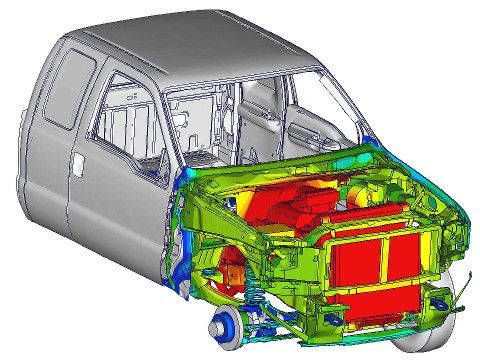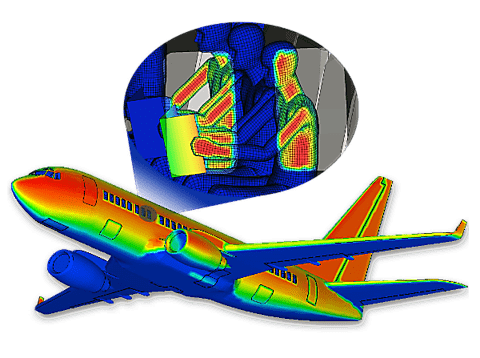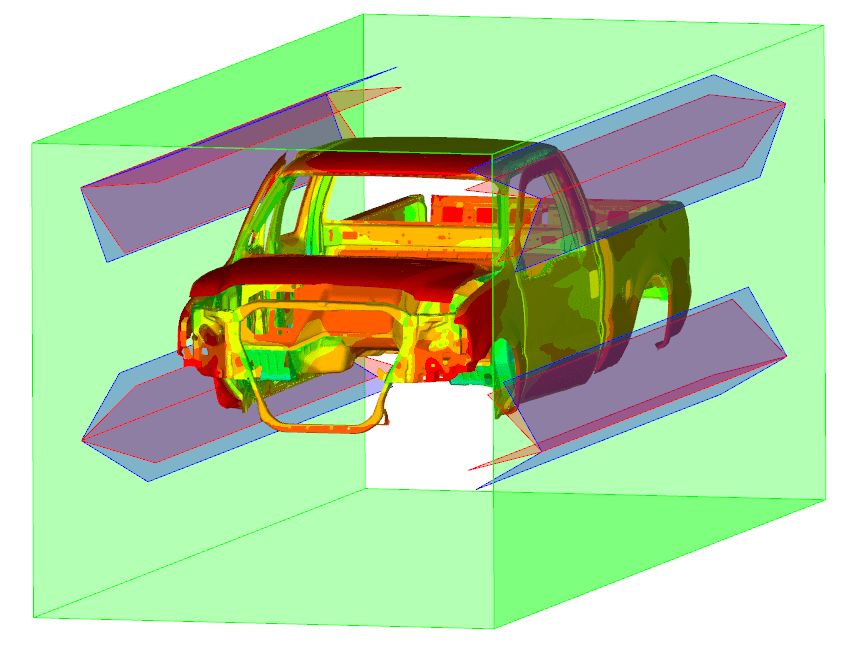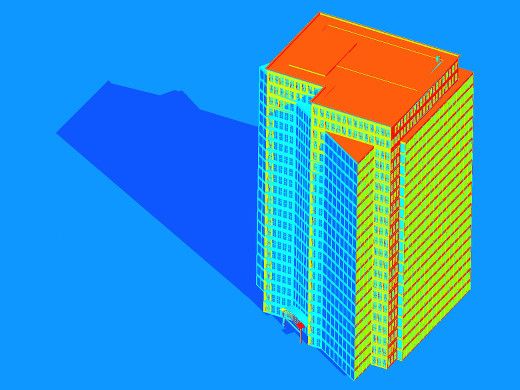Solutions to engineering problems in various industry sectors
THESEUS‑FE is applied world-wide to solve a variety of engineering problems.
Historically, THESEUS‑FE was heavily used for thermal management analysis of various vehicle types,
including cars, busses, trains and aircrafts.
THESEUS‑FE is the right choice of simulation tool when the focus is on predicting thermal comfort of passengers or building occupants.
Nowadays, the application domain of THESEUS‑FE has expanded significantly. New features are regularly introduced to support specialized simulations in novel fields. As an example we can present the special components in the THESEUS‑FE portfolio for the simulation of automotive paint shop processes.
See the small overview below to get a rough overview of the areas of applications for THESEUS‑FE.
Automotive

Due to its origin as an in-house software project at German car manufacturer BMW, THESEUS‑FE's roots lie in the automotive area. All major thermal management problems of interest during the operation of cars and other road vehicles can be simulated with THESEUS‑FE.
Some use cases for THESEUS‑FE in this field are:
- Cabin HVAC
- Passenger and driver comfort
- Thermal reliability of components
- Underhood and underbody thermal analyses
- Headlight cooling
Transportation

Passenger comfort prediction has always been a key strength of THESEUS‑FE. This makes it the logical tool to use for simulating the thermal comfort of passengers in busses or trains. The physics governing heat transfer in a larger cabin environment are essentially the same as for smaller cars. The larger number of occupants is easily dealt with using our advanced GUI functionality to place virtual passengers in seated or standing positions.
Read more about the use of THESEUS‑FE in transportation vehiclesAerospace

The demands on passenger aircraft HVAC systems are much higher than for ground vehicles. Environmental conditions vary within the extremes of +40 °C on the ground in tropical regions and -50 °C during flight at altitudes of several kilometers. To ensure safe conditions within the passenger cabin, the air pressure, temperature and oxygen level must be continuously monitored and controlled. The additional demands of a comfortable and enjoyable journey, rather than simply survivable conditions, require an even narrower range for these parameters.
THESEUS‑FE is used in aerospace industry and research primarily for evaluating the thermal comfort of passengers and validating different air conditioning concepts.
Read more about the usage of THESEUS‑FE used for simulating airplane cabinsPaint Shop

Within the last few years new members have joined the THESEUS‑FE family. The goal of our efforts is turning car manufacturing into a transparent and easily controlled process, rather than relying on trial and error with physical prototypes. The new tools focus on the paint shop stage of car production.
Special tools are available to
- simulate paint drying ovens and prepare thermal input for a subsequent mechanical simulation
- simulate the coat deposition process in electrocoating facilities
Buildings

Today civil engineering and architecture of a building includes energetic aspects. New buildings must not only be highly energy-efficient, but also guarantee thermal comfort of occupants. HVAC systems are now designed to cut down on energy usage while still maintaining comfortable temperature levels.
Possible applications of THESEUS‑FE for building design include:
- identifying thermal bridges
- layout and design of heating and climatization systems
- comparison of glass types and glass coating layers
- cost-benefit analysis of material versus heating costs


